From about 8am on Wednesday messages were pouring in from journalists trying to get into Cairo's Rabaa al-Adeweya square, where one of the campsite sit-ins in support of Muhammad Morsi was being attacked.
“Spoke to a protester inside the sit-in, they say the gunfire is continuous. Still can’t get into the camp. We’re being shot at as we approach” said one from reporter Bel Trew at 9.06am
“I’m getting shot and gassed at the moment in Rabaa” said a text from a photojournalist friend at 10.37am.
But this was nothing to the carnage they and others were witnessing in the now-empty campsite: a mosque on fire, hearing rumours of living patients in the field hospitals being killed or burned to death, bodies smashed by live rounds.
Mohammad Hussan lives in Rabaa. Before Wednesday he was fervently wishing the Anti-Coup Pro-Democracy protestors, as they're officially called, would pack up and go home. Now, he wishes they were still there, alive.
He woke at 6am to the police warning protesters in the street below to get out, or be shot. They told the curious residents not to look out of their windows that day and forced one of Hussan's neighbours to delete photos taken of the initial warning.
Then at 9am all hell broke loose.
"They [the police]came again and they shot them … I heard them tell the police 'we are your brothers please don't shoot us', but the police said 'you are not my brother'."
Hussan said a neighbour was one of the protesters shot and killed, and had made a heartbreaking phone call to his mother an hour before he died.
"The last time that his mum called him, an hour before he was killed, he said 'Mum it's over, I will see you in heaven'."
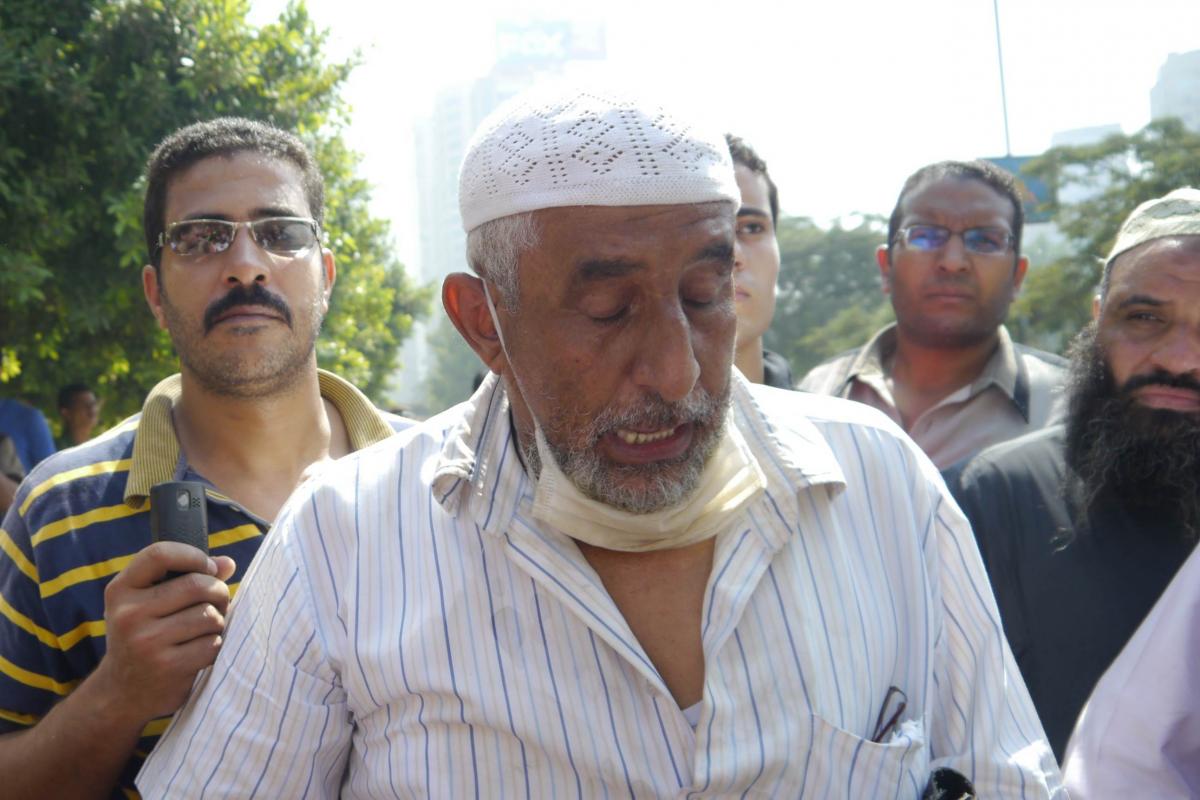
On Thursday night the death toll lay at 525 dead, according to the Health Ministry. The real toll is likely to be higher.
Those working in Al-Iman mosque near Rabaa al-Adeweya square say 256 charred and broken bodies taken there directly from the sit-in are not being counted by the ministry, because they didn't go through a hospital.
If so, that means at least 781 people died in Cairo during Wednesday's massacre, almost touching the toll of 840 who died during the whole 18 days of the 2011 revolution.
People who were once bystanders to the conflict, or personally against the Anti-Coup protestors are now coming out in support, such as Hussan.
"I don't want Morsi back, but I don't want Mubarak and the army back again. Yesterday it was a war," he said. "Those people are heroes."
On the other side of town, in a well-to-do suburb favoured by foreigners called Mohandiseen, refugees from the smaller Nahda sit-in, bulldozed and burned earlier in the day, were joined by others horrified by what they heard about the military attack there.
By mid-morning a battle was raging outside the Mostafa Mahmoud mosque between Anti-Coup protestors and the police: the former with rocks torn from pavements and the latter with tear gas and live ammunition.
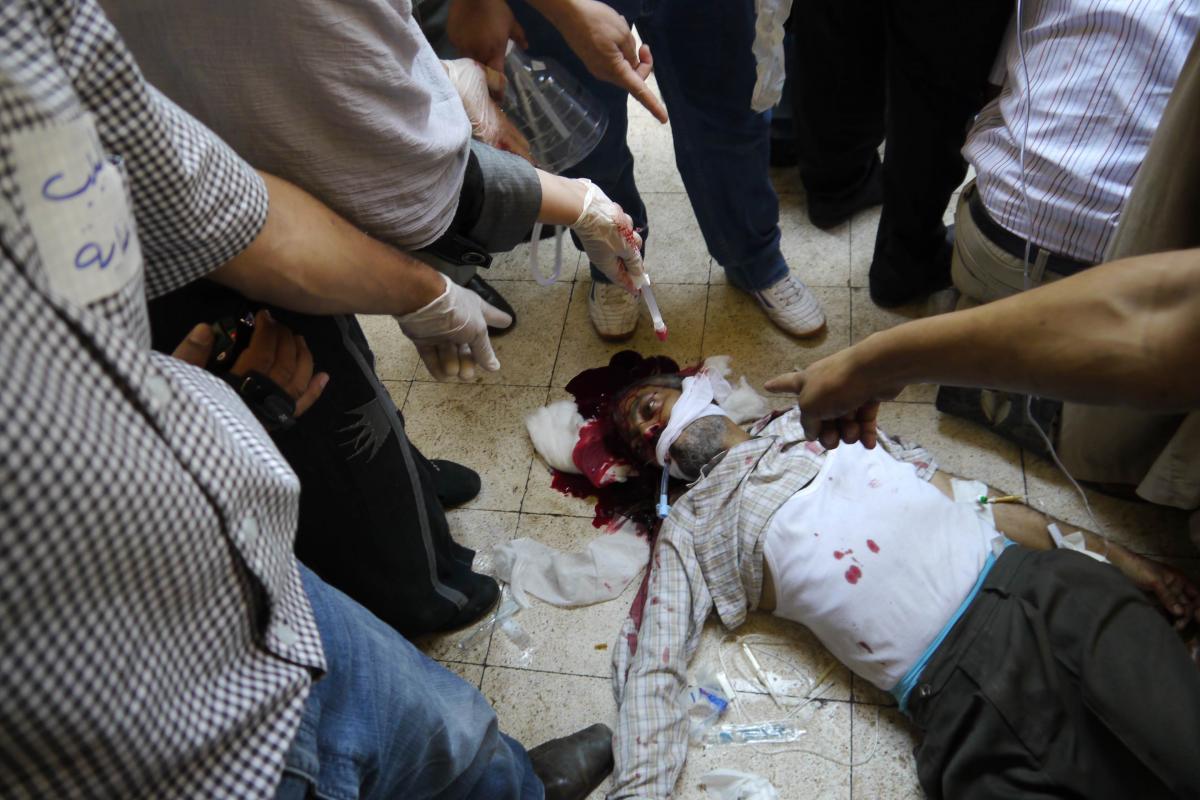
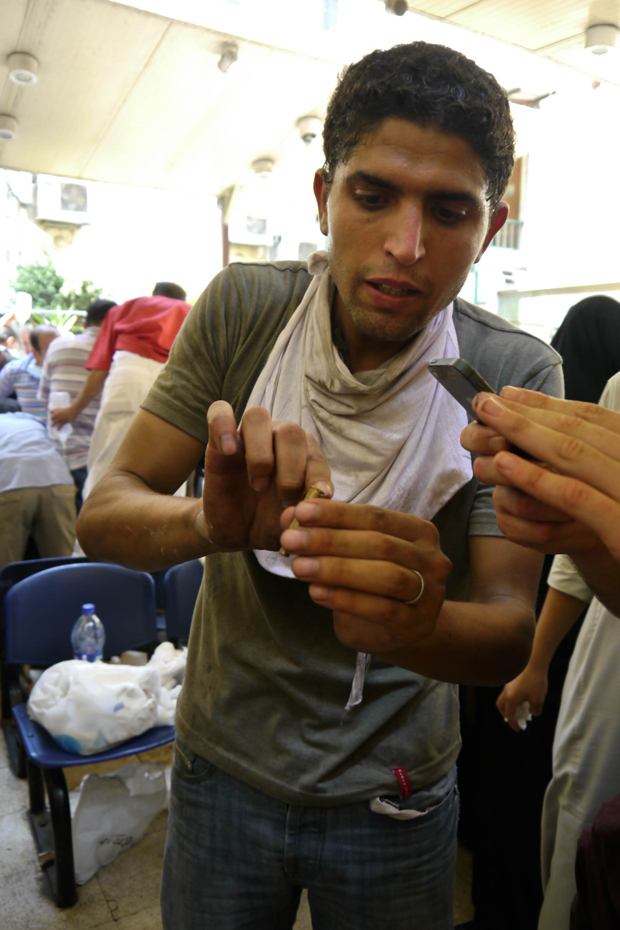
Alaa Fathy, 28, was one such man. Sitting quietly on a ledge, his face grey and eyes focused on the floor, Mahmoud explained to NM through a translator how the police had started with tear gas but suddenly began shooting, hitting him in the shoulder.
He was not involved in the sit-ins but had come to Mostafa Mahmoud to peacefully protest against the attack on Nahda square.
Dr Mahmoud Edow, a plastic surgeon from the nearby private Al-Salem Hospital, said 22 people had died in the mosque's field hospital that day, with unknown numbers dying at hospitals nearby.
He also said he would be doing what he could for the Anti-Coup movement from now on.
During the midday prayer time at the mosque, when the casualties were still few, a long queue snaked out of the mosque door, of men waiting patiently to wash for prayers.
Past the queue badly wounded men with heads lolling and eyes half-closed were carried into a makeshift hospital, set up in the belly of the mosque.
It smelt like a slaughterhouse and the blood was washed from the floor with whatever came to hand – water, iodine, soft drink.
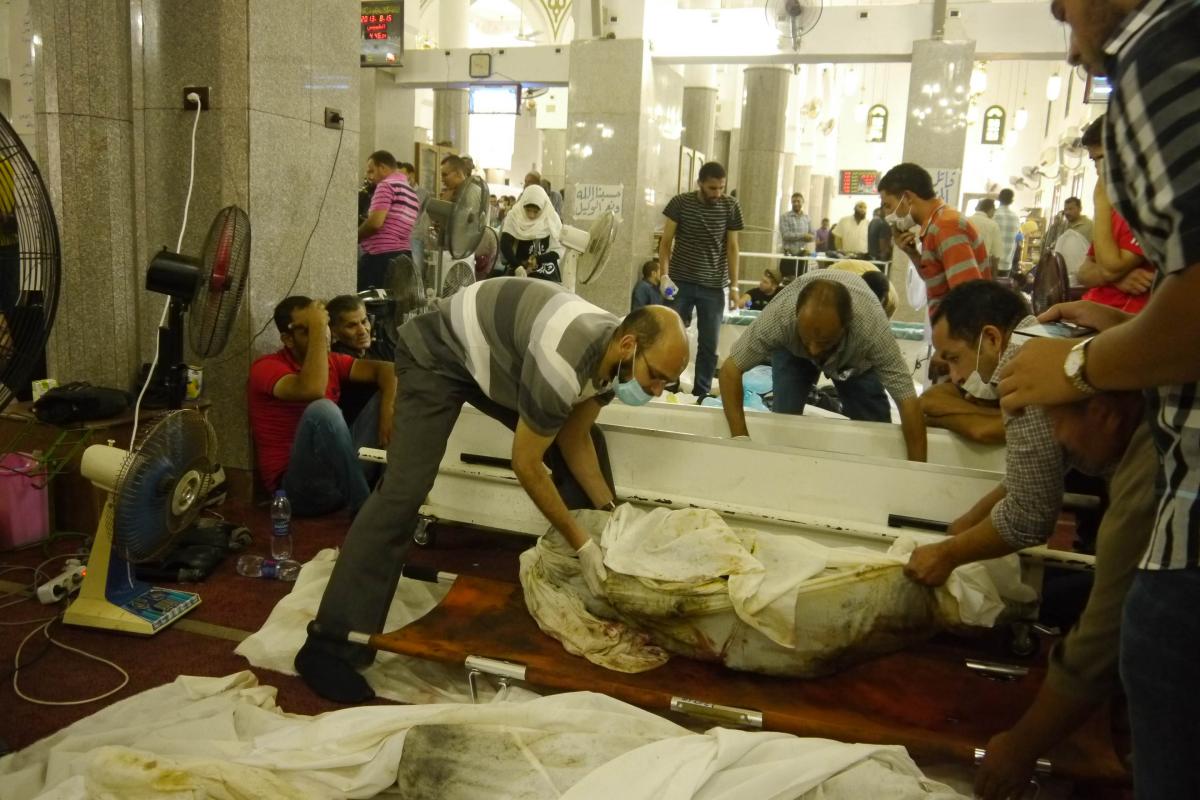
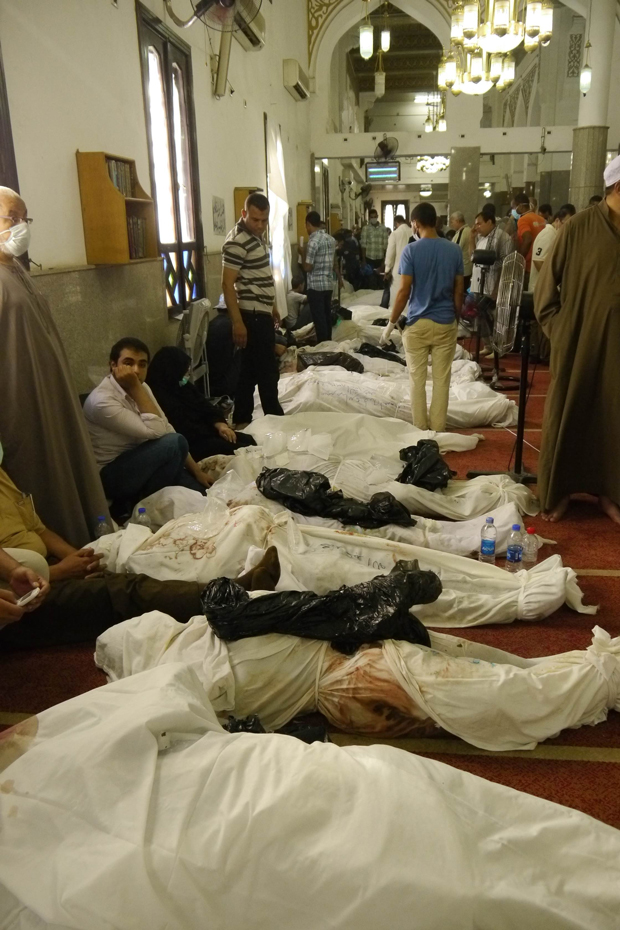

As the only journalists to get to Mohandiseen, the other freelancer and I were constantly being implored to witness and document the horror the panicky bystanders were experiencing.
Doctors were on their knees in pools of blood and quiet teams of women, many fully veiled in abaya and niqab, organised donations of medical supplies and took down details of injuries.
Shocked rescuers of a man shot in the head by live bullets kept tugging at my hand and pointing to his head crying, “His brains, see there, you can see his brains!”
Others insisted on showing us the morgue, filling up with people all killed by live bullets to the head, chest and abdomen, as in Rabaa and Nahda, earlier.
By mid-afternoon the reality of what was happening began to sink in.
A man squatted in the middle of the chaos, head in hands, trying to block out the world around him. Another sobbed and raged in a corner as friends tried to console him.
The government has since imposed a month-long state of emergency, with a curfew enforced between 7pm and 6am for Cairo and 10 other governorates.
This means soldiers stationed along the Nile Corniche near Downtown, tanks and checkpoints in crucial parts of town, and arrest for anyone outside without good reason.
President Adly Mansour has accepted the resignation of vice president Mohamed ElBaradei, a man widely seen as a moderate balance to the obvious military influence behind the interim government.
Egypt has not seen this level of sectarian division in modern history, and now across the country Egyptians are wondering what terrible new turn their country has taken.
Donate To New Matilda
New Matilda is a small, independent media outlet. We survive through reader contributions, and never losing a lawsuit. If you got something from this article, giving something back helps us to continue speaking truth to power. Every little bit counts.



